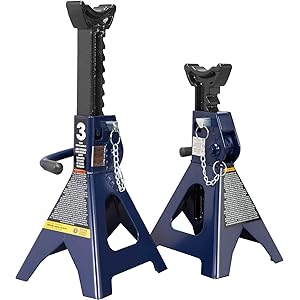As a trailer enthusiast, I know how crucial it is to stay connected while on the road. Whether it’s for work, entertainment, or keeping in touch with loved ones, having internet access can make all the difference. In this article, I will share my personal experiences and insights on how to get internet in a trailer, providing you with top tips and tricks that I’ve learned along the way.
Why Internet Access is Essential in a Trailer
Living in a trailer or RV offers incredible freedom, allowing you to explore new places at your own pace. However, without reliable internet access, that freedom can feel limited. Here are some reasons why having internet in a trailer is essential:
- Work from Anywhere: With remote work becoming increasingly common, having internet access allows you to work on the go.
- Stay Connected: Keeping in touch with friends and family is easier with internet access, especially when traveling through remote areas.
- Entertainment: Streaming services, online gaming, and social media are more enjoyable when you have a stable internet connection.
- Navigation and Planning: Use GPS and planning apps to find your next destination or campsite with ease.
Types of Internet Options for Trailers
Now that we’ve established the importance of internet access, let’s dive into the various types of internet options available for trailers. Each option has its pros and cons, so it’s important to choose the one that best fits your lifestyle and needs.
1. Mobile Hotspots
Mobile hotspots are one of the most popular choices for trailer dwellers. You can use your smartphone as a hotspot or invest in a dedicated mobile hotspot device. Here’s what you should know:
- Pros:
- Easy to set up and use.
- Flexible data plans available.
- Works almost anywhere with cell service.
- Cons:
- Data caps can limit usage.
- Signal strength can vary based on location.
In my experience, I’ve found mobile hotspots to be reliable, especially when traveling through urban areas. However, I always make sure to check the coverage maps of my chosen provider before heading out.
2. Satellite Internet
If you frequently travel to remote areas where cell service is nonexistent, satellite internet might be your best option. Companies like HughesNet and Viasat offer satellite internet services that can work even in the most secluded locations.
- Pros:
- Available almost anywhere.
- Higher data limits compared to mobile hotspots.
- Cons:
- Higher costs compared to other options.
- Latency issues can affect streaming and gaming.
While satellite internet has been a lifesaver for my trips to the mountains, I have noticed that the latency can be frustrating when trying to stream videos or play online games.
3. Wi-Fi Extenders
If you’re frequently parked near campgrounds or RV parks, using a Wi-Fi extender can help you tap into available networks. These devices boost weak signals and can provide a stronger connection.
- Pros:
- Cost-effective solution for accessing public Wi-Fi.
- Improves signal strength for better connectivity.
- Cons:
- Dependent on the availability of public Wi-Fi.
- Security risks associated with public networks.
On my last trip, I used a Wi-Fi extender at a campground, which allowed me to access the park’s Wi-Fi for streaming movies at night. Just remember to use a VPN to stay secure when connected to public networks!
4. Fixed Internet Connections
If you plan to stay in one location for an extended period, setting up a fixed internet connection may be an option. This could be through a local ISP or cable provider.
- Pros:
- Stable and fast connections.
- No data caps or throttling.
- Cons:
- Not practical for travel.
- Requires a permanent address.
I once had a fixed internet connection while parked at a long-term site, and it was fantastic for working remotely. However, it’s not a viable option for those who are always on the move.
Choosing the Right Plan for Your Needs
When it comes to selecting an internet plan, it’s essential to assess your usage needs. Here are some factors to consider:
- Data Usage: How much data do you typically use in a month? If you’re streaming videos or playing games, you may require a plan with higher data limits.
- Speed Requirements: Consider the activities you’ll be doing online. Video conferencing and gaming require faster speeds than browsing or checking emails.
- Coverage Area: Ensure that your chosen provider has coverage in the areas where you frequently travel.
- Budget: Compare costs among different providers and choose a plan that fits your budget.
After evaluating my own internet usage, I opted for a mobile hotspot with unlimited data. This choice has served me well during my travels.
Setting Up Your Internet Connection
Once you’ve chosen the right internet option, setting it up is the next step. Here’s a simple guide to help you get connected:
- Mobile Hotspot:
- Activate your mobile hotspot feature on your smartphone or set up your portable device.
- Connect your laptop or tablet to the hotspot using the provided password.
- Satellite Internet:
- Follow the installation instructions provided by your satellite provider.
- Ensure that the satellite dish has a clear line of sight to the sky.
- Wi-Fi Extender:
- Plug the extender into a power source.
- Connect it to the available Wi-Fi network using the setup instructions.
During my first setup of satellite internet, I learned the hard way that positioning the dish is key. Make sure to take the time to find the best location!
Maximizing Your Internet Experience
Having internet access in your trailer is just the beginning. Here are some tips to enhance your online experience:
- Use a VPN: Protect your data and privacy, especially when using public Wi-Fi networks.
- Monitor Data Usage: Keep track of your data consumption to avoid overage charges.
- Optimize Your Devices: Ensure that your devices are up to date and functioning properly for the best connectivity.
Since I started using a VPN, I feel more secure while browsing, especially when I’m connected to public Wi-Fi. It’s a small step that makes a big difference!
Real-Life Experiences and Case Studies
To provide additional insights, I reached out to fellow trailer dwellers to gather their experiences with internet access:
- Sarah, Full-Time RVer: Sarah shared that she relies heavily on a mobile hotspot, stating, “It’s been a game changer for my work. I can easily connect to clients without worrying about internet issues.”
- John, Seasonal Traveler: John prefers satellite internet for his remote travels. He remarked, “While it’s pricier, I can work and stream from anywhere, which is worth it to me.”
Hearing these stories has reinforced my belief in the importance of choosing the right internet solution for my travels.
Conclusion
In conclusion, having internet access in your trailer is not just a luxury; it’s a necessity for modern-day travelers. Whether you opt for a mobile hotspot, satellite internet, or a Wi-Fi extender, the key is to choose the option that best fits your lifestyle and needs. With the right plan and setup, you can enjoy the freedom of the open road without sacrificing connectivity.
FAQs about Getting Internet in a Trailer
1. Can I use my smartphone as a hotspot?
Yes! Most smartphones have a built-in hotspot feature that allows you to share your mobile data with other devices.
2. How do I choose the best internet provider for my trailer?
Consider factors such as coverage area, data limits, speed requirements, and your budget when selecting a provider.
3. Are there any security risks when using public Wi-Fi?
Yes, public Wi-Fi networks can be vulnerable to hacking. It’s recommended to use a VPN for added security.
4. What is the average cost of mobile hotspot plans?
Mobile hotspot plans can range from $20 to over $100 per month, depending on data limits and provider.
Stay Connected and Share Your Experience!
Thank you for reading! If you found this article helpful, consider signing up for our newsletter for more tips on trailer living and internet access. Please share this article with friends and on social media to help others discover the best ways to stay connected while exploring the world!
TCE 3 Ton (6,000 LBs) Capacity Double Locking Steel Jack Stands, 2 Pack, Blue, AT43002AU
$27.71 (as of November 15, 2025 07:52 GMT -03:00 - More infoProduct prices and availability are accurate as of the date/time indicated and are subject to change. Any price and availability information displayed on [relevant Amazon Site(s), as applicable] at the time of purchase will apply to the purchase of this product.)
Sign up for our newsletter and stay up to date with exclusive news
that can transform your routine!





